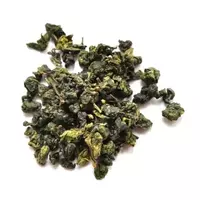Tea

Tea is called not only a fragrant drink, the popularity of which around the world is simply beyond doubt, but also tea leaves directly prepared in a certain way, designed to brew this drink. In addition to excellent taste qualities, an important addition is the fact that, thanks to the numerous healing properties of tea, it has been considered very useful for health from time immemorial.
Types of tea
There are simply a huge number of varieties, as well as types of tea, and their variety depends on many factors. For example, by type of tea bush, three main varieties can be distinguished: Chinese, Assamese and Cambodian tea. While based on the treatment method, which primarily consists in the degree of fermentation, there are black tea (fermented), green and white tea (unfermented), as well as yellow, red and blue types of tea, which belong to semi-fermented raw materials.
In addition, we know such teas as Indian, Chinese, Japanese, Ceylon, African and many others by country of origin. And often in tea there are various additives, which can be natural and artificial flavors, dried fruits and berries, as well as flowers and herbs.
Tea composition
It is known that due to the rather specific composition of tea, a drink based on it has a mass of certain properties. For example, tea owes its invigorating effect to thein, which is an analogue of caffeine. But unlike the latter, this substance acts significantly longer due to the content of tannins in tea.
By the way, there are about 20 species of tannins in tea, thanks to which the drink acquires incomparable taste and characteristic color. But tea owes more subtle taste and aromatic qualities to the presence of essential oils, the amount of which reaches 2
3. In addition, it also contains vitamins and minerals that are important for the human body.
The benefits of tea
The benefits of tea, as well as its beneficial effect on the state of health, have long been known to humanity. It can relieve fatigue, normalize and activate metabolism, cardiac activity, the work of the digestive tract and the nervous system. In addition, due to the insignificant calorie content of tea and the ability to act as a natural cleansing agent, it helps in the fight against excess weight and strong slagging of the body. This mainly applies to green tea.
It has been scientifically proven that the benefit of tea, in particular green, is that with its regular consumption, a large amount of substances responsible for the systematic renewal of cells enter the body. This suggests the ability of tea to give a rejuvenation effect.
The harms of tea
It is a pity, but along with the benefits, there is also the likely harm of tea, which can affect human health in the event of active abuse. For example, if you drink strong tea in unlimited quantities for a long time, the formation of an unattractive yellow coating on tooth enamel is observed. In addition, the strong drink contains a lot of thein, which can lead to headaches and insomnia.
tea 140.9 kCal
Energy value of tea (Ratio of proteins, fats, carbohydrates - ju):
Proteins: 20 g (~ 80 kCal)
Fats: 5.1 g (~ 46 kCal)
Carbohydrates: 4g (~ 16kCal)
Energy ratio (b | y): 57% | 33% | 11%
 Español
Español Français
Français Português
Português Русский
Русский 简体中文
简体中文 繁體中文
繁體中文 日本語
日本語 한국어
한국어 العربية
العربية Türkçe
Türkçe Қазақ
Қазақ Deutsch
Deutsch Italiano
Italiano Українська
Українська
